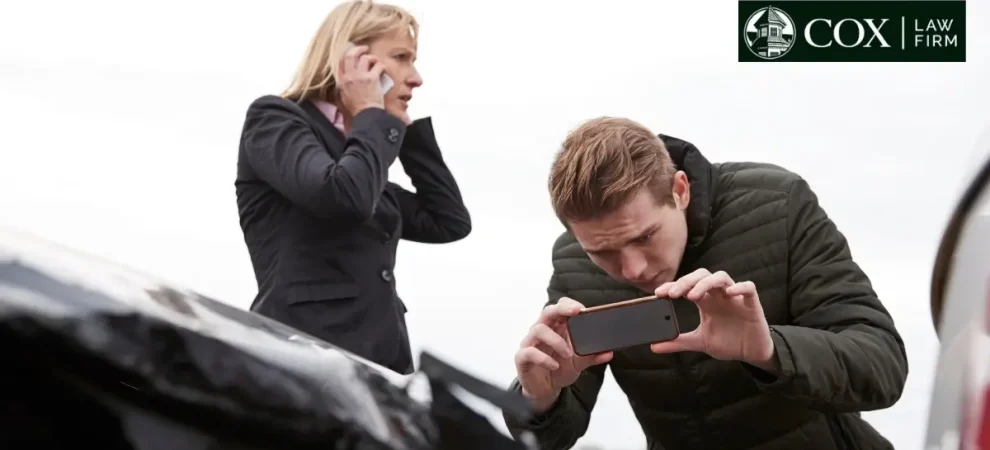How Is Fault Determined in a Louisiana Car Accident?

When a car accident happens, understanding how fault is determined in a Louisiana car accident becomes an important part of pursuing compensation. Louisiana’s laws can be complex, but knowing how fault is assigned can help you understand your options after an accident. The process can involve understanding detailed rules and gathering important evidence.
A Review of Louisiana’s Fault System
Louisiana follows a fault-based approach to car accidents. The at-fault driver or their insurance pays for damages. This differs from no-fault states, where each driver’s own insurance covers their costs regardless of responsibility. Under this system, it’s important to determine who caused the accident because this party usually bears the financial burden.
The state also follows a comparative fault rule, which assigns each driver a percentage of fault when both contributed to the accident. This approach helps distribute liability fairly, especially in accidents where fault isn’t clear. Insurers often assess fault by reviewing evidence from the scene of the accident.
Filing a Claim With Insurance
Filing an insurance claim is the first step to take after a car accident in Louisiana. Contact your insurer promptly to report the accident, sharing basic details like time, location, and circumstances. An adjuster is normally assigned to gather information and assess fault based on evidence.
Submit relevant documents you have, including visual evidence like photos and videos. Clear documentation like witness statements and medical records allows the insurer to assess fault accurately and can help speed up the process. If you disagree with the insurer’s initial assessment, you can consult a legal professional to negotiate a fair settlement.
How to Gather Evidence
Gathering evidence at the accident scene can help support your claim and lead to a fair determination of fault. Start by taking clear photos and videos of the vehicles, road conditions, traffic signs, and skid marks. Documenting the scene in detail can preserve important information for later use.
Collect contact details from witnesses because their statements offer an impartial account of the accident. Witnesses can confirm specific events, like how fast the drivers were going or the actions that led up to the crash. Medical documentation is also key, as it connects injuries to the accident and supports claims for damages.
Finally, request a copy of the police report, which includes the officer’s observations and any citations issued. These forms of evidence can combine to create a strong foundation for proving fault and supporting your case in a fair and accurate way.
Why Do I Need an Attorney?
Working with an attorney can be beneficial when trying to resolve disputes regarding fault. This is especially true if there are severe injuries or if a case is disputed. Attorneys can help with gathering evidence, interpreting legal documents, and negotiating with insurers.
If the case goes to court, attorneys can provide evidence and argue on your behalf, aiming to prove why the other driver was at fault. A lawyer’s experience can help your voice be heard throughout the process, increasing the likelihood of a fair result.
Legal representation can also encourage fair settlements without a trial. Insurers might be more likely to negotiate when attorneys are involved. Though attorneys aren’t always required, their guidance helps you stand your ground, especially in difficult or contested cases.
Settlements vs. Trial
In Louisiana car accident cases, many disputes of fault are settled out of court through negotiation. This process can save time and resources and allow both parties to agree on a fair resolution without a trial. Insurers often prefer to settle because they reduce costs and avoid a lengthy court proceeding.
In a settlement, attorneys help ensure that compensation reflects the facts of the accident. If both sides cannot agree, a trial may be necessary to reach a resolution. Trials involve presenting evidence before a judge or a jury for them to make the final call on fault and damages.
While trials offer a formal resolution, settlements can be quicker and less expensive. Both options allow for fair outcomes, but settlements can provide a more straightforward resolution to fault disputes.
FAQs
How Does Louisiana’s Fault System Work for Car Accidents?
Louisiana’s fault system works for car accidents based on which driver(s) are considered at fault. The driver who caused the accident is usually responsible for paying the damages. This means if the driver is found at fault, their insurance covers the costs related to injuries and property damage. The system lets both courts and insurers assign fault fairly based on each driver’s role in causing the accident.
Who Decides Fault in a Louisiana Car Accident?
Fault in a Louisiana car accident is usually determined by insurance companies, police, or the courts. Insurers review evidence like accident reports and witness statements to make an initial fault determination. Police officers can also indicate fault in their reports, especially if they issue citations for violations. If there’s a disagreement with the insurance company’s assessment, the case can go to court, where a judge or jury can review the case and make a final decision.
How Do Police Reports Affect the Determination of Fault?
Police reports affect fault determination by providing details from the accident scene, giving statements from drivers and witnesses, and observations from the investigating officer. While police reports don’t directly assign fault, insurers and courts view them as objective accounts of the accident. Information like citations, road conditions, and any visible driver behavior often influences the assessment of fault.
Can Fault Be Determined Without Going to Court?
Fault can be determined without going to court. Insurance companies use evidence like police reports, photos, and witness statements to assess responsibility. If both drivers accept the insurer’s decision, the case can be resolved without legal action. Settling out of court can save time and money, especially when fault is straightforward. However, if there’s a disagreement, court involvement might be necessary for a fair outcome.
Take Control of Your Claim With Support From Cox Law Firm
Learning how fault is determined can help protect your interests and keep things fair. With guidance from attorneys, you can make informed decisions that positively impact your case. Schedule a consultation with Cox Law Firm today to ensure you don’t settle for less than what’s fair.
Request Your
Free Consultation
Fields Marked With An “ * ” Are Required

